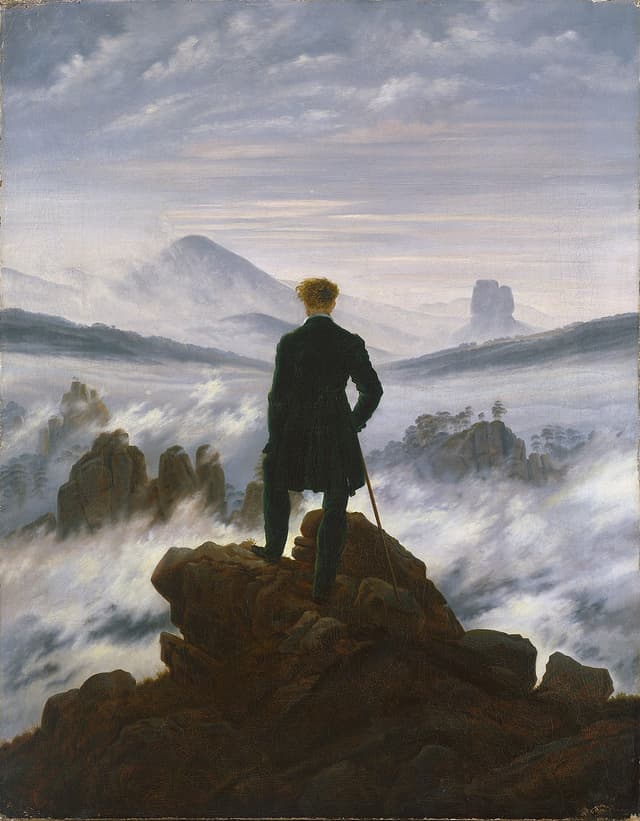December 2024
For a while now, I’ve had this nagging sense that the world is on the brink of something catastrophic. It’s been on my mind for the last five years, and I still can’t figure out if it’s a genuine intuition or just a synthetic thought - a product of media narratives shaping my perception. I don’t consume much “mainstream” media, but I’m not naïve enough to believe I’m unaffected by external influences. No, this isn’t about shadowy conspiracies or “lizard people”. It’s not that extreme. It’s more about the obvious fact that media - whether (or the public discourse) either social, next-gen, or traditional - has always been shaped by underlying forces. Is this influence a good thing? Probably not. But it’s not new either - it’s as old as society itself.
Take Europe, for instance, where the story unfolds chronologically like this:
- In early human settlements, elders and priests were seen as the bearers of truth, even though the actual economic or political power didn’t necessarily rest in their hands.
- In Ancient Greece, truth was shaped by philosophers, oracles, and political leaders. They laid the groundwork for guiding societal thought and action.
- In Ancient Rome, emperors and senators didn’t just wield power - they controlled narratives through public decrees, speeches, and grand spectacles, all designed to maintain their authority and societal order.
- During Medieval Europe and the Renaissance, the Church became the supreme arbiter of truth. Monarchs and clergy alike used religion and manuscripts to control society’s worldview. In a sense, they built the longest-lasting and most efficient marketing machine the world had ever seen - at least until social media came along. The Renaissance marked the beginning of change, as Protestant movements and the printing press started fostering critical thinking.
- By the late 19th century, societal movements began encouraging a devotion to empiricism and evidence-based knowledge. People started questioning established norms, but even then, information was highly localized and slow to spread.
- The 20th century revolutionized everything. With the arrival of radio, television, and eventually the internet, truth-sharing became faster, broader, and more contested. Governments, corporations, and media conglomerates all competed for control over public perception.
- And now, in the 21st century, information is more globalized than ever. Fear and optimism, conflict and progress, triumph and despair - they all coexist on a global stage. The way we consume information is deeply fragmented and generationally divided, adding to the chaos.
So here we are, in the “now.” This moment is what matters, yet it feels impossible to grasp. Consuming the news is like gazing into the ether - a paradoxical mix of emptiness and overwhelming fullness, chaos and peace swirling together. It reminds me of the painting Wanderer above the Sea of Fog, staring out at the vast, untamable void. At the same time, I can’t help but feel like Father Hennessy from Constantine, scanning the news obsessively, almost hunting for trouble. It’s as though the news has become a mirror for our collective anxiety, offering us endless reflection but no real answers.

AI, war, supply chain attacks, homicides. Shit is going wild. Death is and will be as old as life, but damn we are getting creative. Global pressures are weirdly interesting, and the butterfly effect is getting compounded as we speak, everyone, everything is a node, and we are all connected. Jesus Christ... that's Jason Bourne lol. But I ask, when is it time to jump ship and hide in a bunker in the woods waiting for Armageddon? When-is-it-time?
Now, on serious note. It's getting overwhelming, the rulers and the elites are really utilizing the internet and the news to spread fear. I feel like I can't pinpoint the thing that scares me the most in the world stage and I am probably not the only one with this feeling. US politics, Gaza, Economic Turmoil, Ukraine, European Decay. Not just I am afraid of getting splashed, but I fear for humanity.
This is probably my darkest article yet. While it doesn't necessarily reflect my state of mind - as I'm privileged in every sense of the word - I can't help but feel uneasy. War isn't at my doorstep, my countrymen aren't being slaughtered, and the economy remains livable, yet I still don't feel safe. Life goes on, but we must claim control of public discourse. We need facts as they are, not twisted to fulfill the narcissistic, power-hungry narratives of the elites. This isn't about left or right, up or down, or going in circles. In a world where information travels at lightning speed, we desperately need a renaissance of critical thinking.